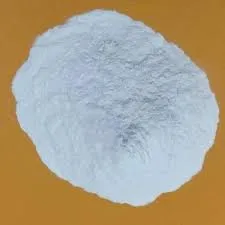
Nov . 15, 2024 13:58 Back to list
mortar adhesive additive
The Role of Mortar Adhesive Additives in Construction
In contemporary construction, the demand for stronger, more durable building materials is ever-increasing. Among these materials, mortar plays a pivotal role, serving as a crucial binding agent in masonry. However, to enhance the performance properties of mortar, adhesive additives have emerged as essential components. This article explores the significance of mortar adhesive additives, their types, benefits, and their role in modern construction practices.
Understanding Mortar and Its Components
Mortar is a mixture primarily made of cement, sand, and water, designed to bind building stones such as bricks and blocks. The basic composition of mortar provides adequate adhesion and flexibility. However, environmental factors and varying structural demands can compromise its effectiveness. This is where mortar adhesive additives come into play.
Adhesive additives are materials added to the mortar mixture to improve its properties. They can modify adhesion, workability, water retention, and even resistance to environmental elements like freezing and thawing. By synthesizing these various properties, contractors can achieve optimal performances tailored to specific construction needs.
Types of Mortar Adhesive Additives
There are several types of adhesive additives used in mortars, each serving distinct purposes
1. Polymer-Based Additives These are perhaps the most common types of adhesive additives. Products like polyvinyl acetate (PVA) and styrene-butadiene copolymers are used to enhance the flexibility and adhesion of mortar. These additives improve the workability and bond strength, making them especially useful in specific applications such as tile setting and repair work.
2. Hydrophobic Additives These additives contribute to the water resistance of mortar. By repelling water, they help prevent moisture-related damage, such as mold growth and material degradation. This is particularly important in regions with high humidity or heavy rainfall.
3. Fiber Reinforcements Integrating fibers—such as polypropylene, glass, or synthetic materials—into the mortar mix enhances its tensile strength and reduces cracking. These fibers help to maintain the integrity of the mortar in the face of stress, temperature changes, and shrinkage.
mortar adhesive additive

4. Retarding and Accelerating Agents Depending on the environmental conditions and the specific requirements of a project, additives can be introduced to either slow down or speed up the curing process. This flexibility allows for better management of the construction timeline and conditions.
Benefits of Using Mortar Adhesive Additives
The incorporation of adhesive additives into mortar offers numerous advantages that contribute to improved construction quality
- Enhanced Adhesion Adhesive additives significantly improve the bond between the mortar and various masonry materials. This leads to a sturdier structure that is less susceptible to delamination or failure.
- Increased Durability By improving the mortar’s resistance to environmental factors—such as weathering, freezing conditions, and chemical exposure—these additives prolong the lifespan of masonry structures.
- Improved Workability Additives can enhance the ease of mixing and application of mortar. This allows contractors to work more efficiently and reduces the likelihood of errors during installation.
- Customization With a variety of additives available, mortar can be tailored to meet specific project requirements. Whether it’s for a high-moisture area, low-temperature application, or enhancing aesthetics through color additives, the versatility is advantageous.
Conclusion
In conclusion, mortar adhesive additives have revolutionized the construction industry by enhancing the performance of traditional mortar. As construction practices evolve and the demand for durable, efficient building materials increases, the importance of these additives will only continue to grow. By understanding the benefits and applications of mortar adhesive additives, construction professionals can make informed choices that lead to improved results and sustainable building practices. As we move towards a future focused on innovation and efficiency in construction, these additives will undoubtedly play a critical role in shaping resilient infrastructure.
-
Versatile Hpmc Uses in Different Industries
NewsJun.19,2025
-
Redispersible Powder's Role in Enhancing Durability of Construction Products
NewsJun.19,2025
-
Hydroxyethyl Cellulose Applications Driving Green Industrial Processes
NewsJun.19,2025
-
Exploring Different Redispersible Polymer Powder
NewsJun.19,2025
-
Choosing the Right Mortar Bonding Agent
NewsJun.19,2025
-
Applications and Significance of China Hpmc in Modern Industries
NewsJun.19,2025







